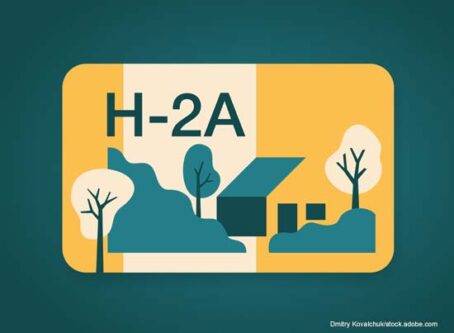Trucking association challenging truck emission rule in federal appeals court
A trucking association is challenging the U.S. Environmental Protection Agency’s new truck emission standards, joining a coalition of states in a fight against the rule published in April.
The Western States Trucking Association, along with the Construction Industry Air Quality Coalition, has filed a petition for review in the U.S. Court of Appeals for the D.C. Circuit challenging the EPA’s new truck emission standards.
The petition appears to be the first from the private sector and has been consolidated with a petition filed by 24 state attorneys general.
Although neither party has yet filed a brief detailing the arguments, Western States Trucking Association filed a document on Thursday, May 30, explaining the main issues it plans to bring up:
- Whether carbon dioxide is an “air pollutant” within the meaning of 42 U.S.C. § 7602 and other provisions of the Clean Air Act
- Whether the truck emission rule violates the nondelegation doctrine prohibiting agencies from exercising legislative power unlimited by an “intelligible principle”
- Whether the rule violates the major questions doctrine prohibiting agencies from acting without “clear Congressional authorization”
- Whether the rule is arbitrary, capricious, or otherwise contrary to law or fact
The trucking association also indicated that it may ask the court to pause the new truck emission rule while it is under review.
The petition was filed on behalf of the association by the Texas Public Policy Foundation.
“EPA does not have the legal authority to require the wholesale electrification of trucks and cars. The rules are not only inconsistent with the Clean Air Act—they are unconstitutional,” Ted Hadzi-Antich, a senior attorney with Texas Public Policy Foundation, said in a statement. “In promulgating the illegal rules, EPA ignores the obvious fact that there is woefully insufficient infrastructure in the nation to support the break-neck pace set by EPA for switching from fossil fuels to electricity. In the process, EPA restricts the freedom of ordinary Americans to choose their preferred modes of transportation. Congress never gave EPA that kind of expansive authority over individual liberty.”
EPA’s new truck emission standards will require 25% of new sleeper-cab tractors to be zero-tailpipe-emission trucks by 2032.
Manufacturers can reach the requirement through a variety of technologies. However, there is a focus on battery-electric due largely to price and charging infrastructure.
The purchase price of an electric truck is about $400,000, more than double the cost of a diesel-powered truck. That price gap widens when accounting for interest over the life of a 60-month loan, costing up to $5,500 more a month for a payment.
Electric trucks also have a range of less than 300 miles, less than a third of a diesel truck. Due to the required charging time, it would take an electric truck four to five days to make a 1,000-mile run that a diesel-powered truck could do in just two days.
In a cost analysis published by Ryder, the megacarrier found converting to electric trucks will double its Class 8 vehicle operating costs. That additional cost will trickle down to the consumer, resulting in a 1% increase to overall inflation.
The federal lawsuit challenging EPA’s truck emission standards comes shortly after Republican lawmakers introduced a resolution to undo the final rule.
On May 1, Sens. Pete Ricketts, R-Neb., and Dan Sullivan, R-Ark., along with Rep. John James, R-Mich., announced they are introducing Congressional Review Act (CRA) resolutions to invalidate the EPA’s latest rules setting stricter emission standards for both heavy-duty trucks and passenger vehicles.
Sullivan concluded his remarks with a statement from the Owner-Operator Independent Drivers Association.
“Small-business truckers make up 96% of trucking and could be regulated out of existence if the EPA’s misguided mandate comes into effect,” OOIDA President Todd Spencer said in the statement. “This could have devastating effects on the reliability of America’s supply chain and ultimately on the cost and availability of consumer goods. Local mom-and-pop trucking businesses would be suffocated by the sheer cost and operational challenges of effectively mandating EV trucks. We thank Sen. Ricketts and Sen. Sullivan for their leadership in Congress in standing up for America’s small-business truckers to fight EPA’s unworkable emission regulations.” LL









